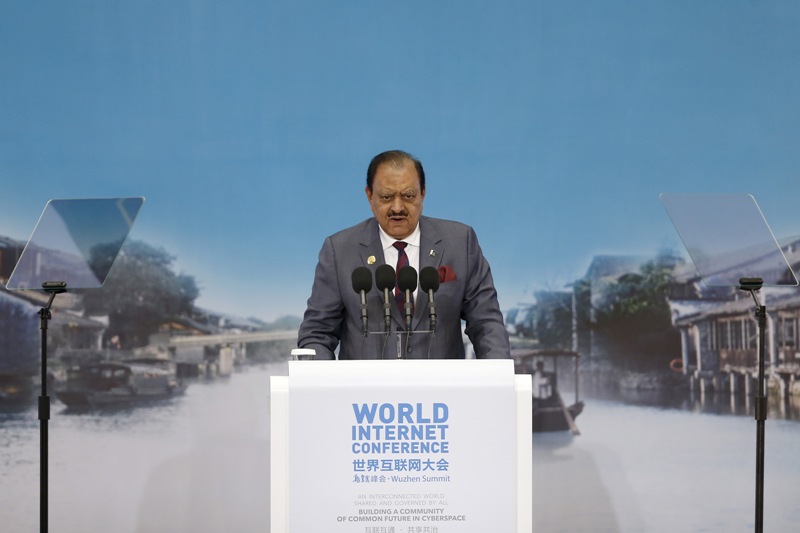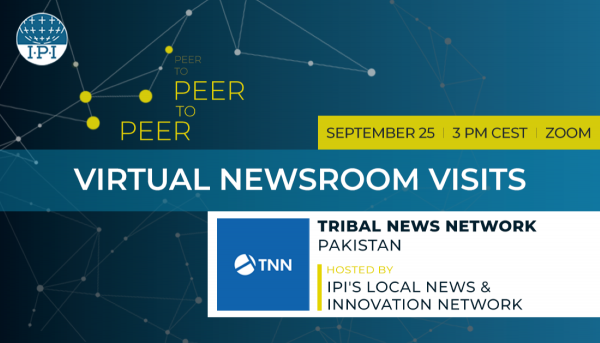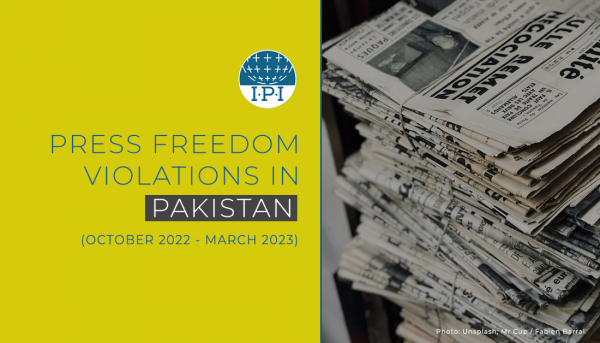A bill that would give extraordinary power to the Pakistani government to censor online content continues to raise alarm among the country’s civil society as it moves through Parliament.
Passed in April by the National Assembly, the lower house of Pakistan’s Parliament, the Prevention of Electronic Crimes Bill (PECB) is currently under review by a subcommittee of the Senate Standing Committee on Information Technology and Telecommunication.
The majority of concerns raised by Pakistani civil society activists centre around Sec. 34 of the bill, which would give the Pakistan Telecommunication Authority (PTA) the power to “manage” online information. Specifically, the clause would allow the PTA to “manage information and issue directions for removal or blocking of access of any information through any information system”.
Critics say that, if the bill passes, the PTA would have a large degree of authority to regulate and remove content from the Internet on a variety of grounds, many of which do not conform to international standards on freedom of expression. Moreover, they argue, the PTA’s actions would not be subject to sufficient judicial review.
Farieha Aziz, director of Bolo Bhi, a civil society organisation that promotes Internet freedom, privacy and gender rights in Pakistan, has been leading objections to the bill and advocating for its revision. She and other activists met with the subcommittee to address concerns about the bill on June 29 and 30.
“One of the larger problems in this bill is [that] a lot of things are left up to the discretion of the executive and not enough judicial oversight is visible and that’s a major concern,” Aziz told the International Press Institute (IPI) in a phone interview.
Aziz and other activists campaiging to reform the bill to protect free expression have helped to achieve several changes in the bill’s language since it was first presented, but they still hold reservations and say they do not think the measure is ready to be passed.
“This is the first law [regulating online content] that’s coming in, it criminalises certain kinds of speech, giving the regulators power,” Aziz said. “For any public authority to exercise that power they have to derive it from law.”
Nighat Dad, executive director of the Pakistan-based Digital Rights Foundation, has also been involved in the process of revising the bill. She said she believes that the senators are listening and trying to change the bill for the better, but she suggested that the majority still do not see online speech in the same category as offline speech.
“There needs to be an acknowledgement of the lack of respect for human rights [in the bill],” Dad told IPI.
According to Sec. 34, the PTA would be empowered to regulate and/or block online content “in the interest of the glory of Islam or the integrity, security or defence of Pakistan or any part thereof, public order, decency or morality, or in relation to contempt of court or commission of or incitement to an offence under this Act”. The current wording of the bill is an almost word-for-word restatement of Art. 19 of the Pakistan Constitution, which guarantees freedom of speech, subject to restrictions.
“They were using these powers [of censorship] before they had them,” Dad noted. “Once they legitimise it then it will be much worse.”
According to Aziz, free speech is enjoyed widely in Pakistan, especially on the Internet, where citizens speak openly about the government and politicians. Passage of this bill could signal a change, however, as the government would acquire new powers to censor speech online as well as access private data of citizens.
“[If the bill passes] there’s going to be a surge in blocking of political content,” Aziz predicted. “At that point [the government] will have the power to do so, and they’re going to start making those content restrictions which we do not feel are theirs to make in the first place.”
Sec. 34 is not seen as the only problematic part of the bill. Activists have also raised objections to Secs. 3, 4, 6 and 7 – which regulate unauthorised access to information and data, including information on critical infrastructure – due to their potential to affect the work of journalists and whistleblowers.
The first draft of the bill singled out “intentional” unauthorised access as the key element of liability under these sections. In the new draft this has been changed to “dishonest intention”. Aziz and Bolo Bhi said they believe this phrase still lacks a clear definition and they suggested that the phrase “malicious intent” be used instead.
Sec. 18 criminalises offences against personal dignity, with no exemption for political expression or satire. If found guilty under this section, a person could face up to three years in prison. Given that Pakistan already has defamation laws, there appears to be little need for this section other than the power it would give the PTA to remove insulting content without waiting for permission from the courts.
Sec. 9 would pose serious problems to the rights of protesters as it criminalises “glorification of an offence and hate speech”. This, Pakistani observers say, could put activists and protesters at risk of legal consequences they advocate for the release of someone accused of an offence.
Aziz said she worries that a blanket ban on certain kinds of language, as the bill currently proposes, could deter the sharing of views online, as well as the kind of critical journalism needed to hold the government accountable.
“When you’re reporting on terrorist activities or reporting on sensitive issues you don’t know what side of the law you’ll find yourself on,” Aziz warned. “Those kinds of lines are being blurred with this bill.”
The Senate subcommittee has a period of 60 days to gather further input about the bill, discuss what possible changes need to be made and report back to the standing committee with its findings.



